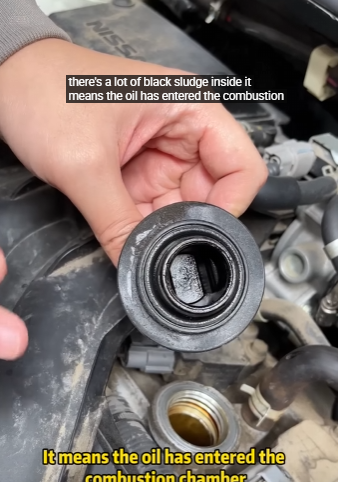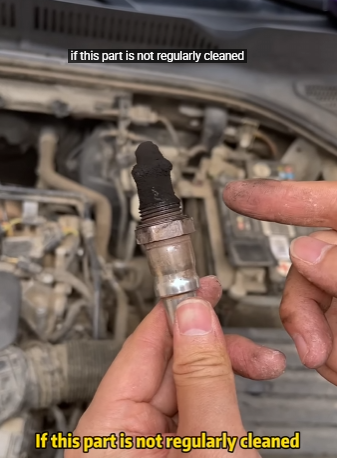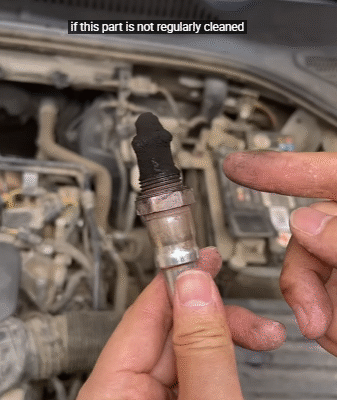
Fuel consumption is one of the most important concerns for car owners today. Rising fuel prices and environmental awareness have made drivers more attentive to how much fuel their vehicles consume. However, many car owners notice that, over time, their cars begin to use more fuel than before. Increased fuel consumption is not only costly but can also be a symptom of deeper mechanical or maintenance problems. Understanding the causes and solutions can help you keep your car running efficiently, save money, and reduce your environmental impact.
In this article, we’ll explore the most common reasons why fuel consumption increases and provide practical solutions to solve the problem.
1. Check Tire Pressure and Wheel Alignment
One of the most overlooked causes of high fuel consumption is tire condition. Underinflated tires create more rolling resistance, which means your engine has to work harder to move the car forward. Even a small drop in tire pressure can significantly impact fuel economy. Similarly, poor wheel alignment can cause uneven tire wear, drag, and additional strain on the engine.
Solution:
- Check your tire pressure at least once a month and always before long trips.
- Keep tires inflated to the manufacturer’s recommended PSI (usually found on a sticker inside the driver’s door or in the manual).
- Schedule wheel alignment every 10,000–15,000 km or when you feel the car pulling to one side.
2. Clean or Replace Air Filters
Engines require a clean and steady flow of air to burn fuel efficiently. A clogged air filter reduces airflow, forcing the engine to consume more fuel to produce the same power. If you drive in dusty or polluted areas, air filters can clog even faster.
Solution:
- Inspect your air filter regularly, ideally every 10,000–15,000 km.
- Replace it if it looks dirty or clogged. A fresh air filter can improve fuel efficiency by up to 10%.
- Consider using high-quality or reusable filters for longer-term benefits.

3. Maintain the Fuel System
Fuel injectors can get dirty over time due to impurities in gasoline. Dirty injectors deliver fuel unevenly, reducing combustion efficiency and increasing fuel usage. Similarly, a failing fuel pump or clogged fuel filter can also affect performance.
Solution:
- Use fuel injector cleaners periodically (added to your fuel tank).
- Replace the fuel filter according to your car manufacturer’s schedule.
- If you suspect fuel system issues, have a mechanic test the injectors and pump for proper function.
4. Spark Plug and Ignition System Care
The ignition system is crucial for burning fuel efficiently. Worn-out spark plugs or faulty ignition coils can cause incomplete combustion, leading to wasted fuel and poor performance.
Solution:
- Replace spark plugs at the intervals recommended in your car manual (often every 30,000–60,000 km, but some modern plugs last longer).
- Inspect ignition coils and wires for wear and replace them if necessary.
- Regular tune-ups can ensure proper ignition timing and reduce unnecessary fuel use.
5. Monitor Driving Habits
Even a perfectly maintained car can have poor fuel economy if driven inefficiently. Aggressive driving, rapid acceleration, excessive idling, and speeding all waste fuel. For example, driving at 120 km/h instead of 100 km/h can increase fuel consumption by up to 20%.
Solution:
- Drive smoothly, accelerating gently and anticipating stops to avoid harsh braking.
- Use cruise control on highways to maintain steady speeds.
- Avoid unnecessary idling; if you’re stopped for more than a minute, turn off the engine.
- Lighten your load—remove unnecessary items from your trunk, as extra weight increases fuel use.

6. Engine Oil and Lubrication
Using the wrong type of engine oil or neglecting oil changes can also raise fuel consumption. Thick, dirty oil increases friction inside the engine, making it harder for the car to run efficiently.
Solution:
- Change engine oil and oil filters as per the manufacturer’s schedule.
- Use the recommended oil grade for your specific engine.
- Consider synthetic oils if your car supports them, as they reduce friction and can improve fuel economy.
7. Check Oxygen Sensors and Emission Systems
Modern cars use oxygen (O2) sensors to adjust the air-to-fuel mixture for maximum efficiency. A faulty sensor may cause the engine to burn too much fuel. In fact, a malfunctioning O2 sensor can reduce fuel efficiency by up to 30%.
Solution:
- Have your O2 sensors checked every 50,000–100,000 km.
- Replace faulty sensors promptly.
- Ensure that the catalytic converter and exhaust system are in good condition.
8. Cooling System and Thermostat
A failing thermostat that keeps the engine running too cold can increase fuel usage. Engines are designed to operate at optimal temperatures; if the engine stays cool for too long, fuel does not burn efficiently.
Solution:
- Ensure your cooling system is working properly and coolant levels are sufficient.
- Replace faulty thermostats to keep the engine at the correct operating temperature.
9. Reduce Use of Air Conditioning
While air conditioning keeps the cabin comfortable, it also puts extra load on the engine, increasing fuel consumption. Driving with open windows, however, increases aerodynamic drag at high speeds, which can also lower efficiency.
Solution:
- Use air conditioning wisely, turning it off when not needed.
- At lower speeds, open windows may be more fuel-efficient than running the A/C.
- At higher speeds, keep windows closed to reduce drag.

10. Keep Up with Regular Maintenance
Ultimately, fuel efficiency depends heavily on regular maintenance. Skipping scheduled services can lead to multiple small issues that combine to cause higher fuel consumption.
Solution:
- Follow the manufacturer’s maintenance schedule without delay.
- Have regular inspections of brakes, transmission, and engine systems.
- Keep records of repairs and fuel consumption to notice patterns early.
11. Consider Technology Upgrades
If your car is older, upgrading certain parts can help improve fuel economy. For instance, installing low-resistance tires, upgrading to a modern exhaust system, or using engine management software updates can reduce consumption.
Solution:
- Ask your mechanic about available upgrades compatible with your car.
- If your car is very old and inefficient, it may be worth considering a newer model with better fuel economy or even a hybrid/EV.
Conclusion
Increased fuel consumption is a problem that almost every car owner faces at some point. The key is identifying the root cause early and taking corrective measures. From tire pressure and air filters to driving habits and advanced systems like oxygen sensors, every detail matters. A car that is well-maintained and driven efficiently not only saves you money but also reduces harmful emissions and extends the vehicle’s lifespan.
By following the steps outlined above—regular maintenance, smart driving practices, and attention to small details—you can effectively solve the problem of increased fuel consumption in cars. Remember, prevention is always better than cure: keeping your car in good condition will help you avoid costly repairs and unnecessary fuel expenses in the future.



